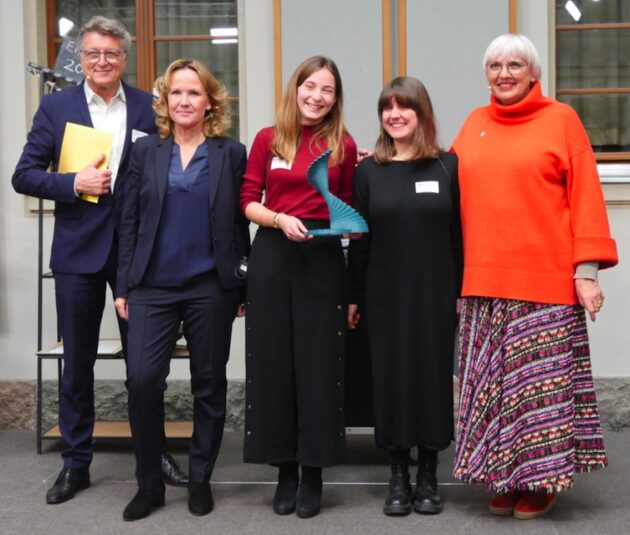
At the 2024 Eisvogel – Prize for Sustainable Film Production show, the French feature film production C’est le monde à l’envers! as well as the production of the German children action-adventure film The School of Magic Animals 3 were awarded in the top category. Awarded by the Federal Ministry for the Environment (BMUV), the Federal Government’s Commissioner for Culture and Media (BKM) and the Heinz Sielmann Stiftung, the Eisvogel prize highlights innovative technical or organizational approaches to reduce the environmental impact of productions, that can also be applied to other productions. Worth of 20,000 euro, the Eisvogel prize was awarded ex aequo to these two productions. It was the first time that an international film production received the Eisvogel prize.
Te production of the French screen adaptation of C’est le monde à l’envers! by Nicolas Vanier took the approach o dvelop an energy and mobility concept without using fossil fuels in order to keep the carbon emissions as low as possible. The electric energy on set was generated by solar panel and part of the produced solar energy was stored in a 11kW battery storage as well as in Pess Energy’s 4 kW power package Bobine for a use at a later hour. The 28 electric vehicles were charged by mobile charging staions, which have been developed for he Tour de France in order to power the suppor vehicls. On set more solar nergy was produced as needed a the base so that the remaining solar energy was fed into the grid.
The crew of the German feature film The School of Magic Animals 3, produced by the Berlin-based company Kordes & Kordes Film, implemented various measures to reduce their environmental impact. At most of the locations the electric energy could be used from the grid. A the locations without any access to the grid, the productions managed to avoid harmful diesel generators. As an alternative solution the production used the mobile generator Filmhybrid 30/60. Developed by the Cologne-based company Kemama, the generator can supply a ten hour shooting day with a continous output of 30 kW. In order to reduce the emissions caused by travelling of the crew, the green consultant Roman Russo assembled a green consultant collective so that local crew members could srve the production at different places in Germany.
Another measure was the use of a trailer with a fresh water and waste water tank so that the waste water from the washing machine in the costume trailer wasn’t diverted into the environment. In order to calculate and reduce the carbon footprint of the film, ISO 14067 was applied to the production of The School of Magic Animals 3. This international norm takes the approach to identify and quantify the carbon emissions in different lifecycle steps of products and services.
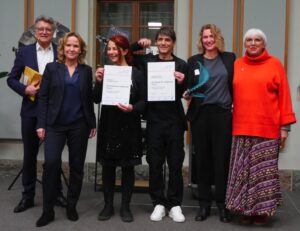 “We award the international Eisvogel prize to support industry pioneers and provide incentives for further innovative ideas that can be applied to green film productions", says Steffi Federal Minister for the Environment. "This year’s winners are forerunners for a sustainable future in the film industry. They serve as great examples for film productions in the future."
“We award the international Eisvogel prize to support industry pioneers and provide incentives for further innovative ideas that can be applied to green film productions", says Steffi Federal Minister for the Environment. "This year’s winners are forerunners for a sustainable future in the film industry. They serve as great examples for film productions in the future."
In the newcomer category the student film Moddergat received the award worth of 5,000 euros. The short film was produced at the German film and TV Academy (dffb) in Berlin. The Eisvogel 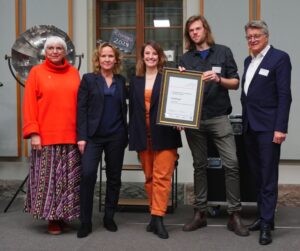 jury appreciated the concept of the production from planning to shooting, which included the creative use of resource-saving solutions. “The nominated productions are looking at the film of the future and are thinking of both, sustainabilty and film”, says Claudia Roth, Federal Government’s Commissioner for Culture and Media. “We need this kind of role models, imaginativeness and creative artists, who go beyond the limits and become an inspiration for others."
jury appreciated the concept of the production from planning to shooting, which included the creative use of resource-saving solutions. “The nominated productions are looking at the film of the future and are thinking of both, sustainabilty and film”, says Claudia Roth, Federal Government’s Commissioner for Culture and Media. “We need this kind of role models, imaginativeness and creative artists, who go beyond the limits and become an inspiration for others."
The applications for the Eisvogel prize for newcomers also included ambitious productions that were made by reducing the resources to a minimum. When shooting the climate documentary Bis hierhin und wie weiter? the filmmaker Felix Maria Bühler used a barrow for the transport of the camera. Meanwhile the Liebst Du mich crew chose as camera grip a plastic chair on which they carried the cameraman. The young nature filmmaker Nisse Kremser moved his camera on a bicycle when he shot the short film Bienenfresser – tropische Vögel auf dem Vormarsch.
“The idea of the Eisvogel Prize has developed into an innovative dynamic that shows that it is very possible to save resources that are harmful to the climate and the environment", sums up Fritz Brickwedde, Chairman of the Board of Trustees of the Heinz Sielmann Foundation. We consider our prize money for sustainable film production as a pioneering investment in the future."
Photos/Videos: © GFS




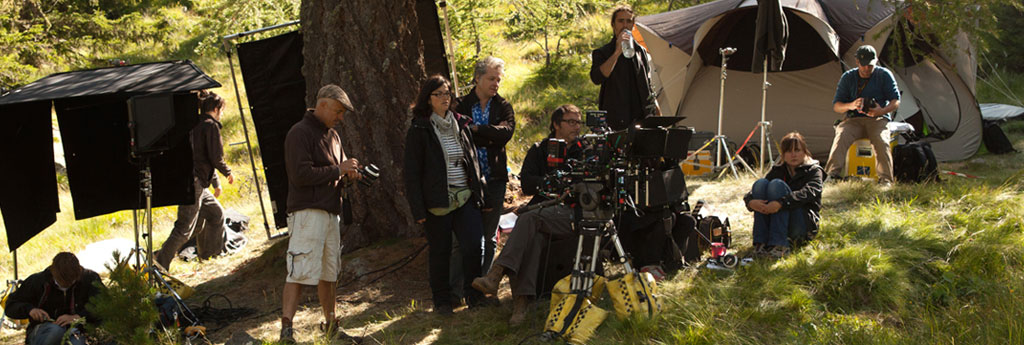








 Robert Redford
Robert Redford Hannes Jaenicke
Hannes Jaenicke Nic Balthazar
Nic Balthazar Nadeshda Brennicke, Actress
Nadeshda Brennicke, Actress Darren Aronofsky, Director, Noah / Jury President, 65th Berlin International Film Festival
Darren Aronofsky, Director, Noah / Jury President, 65th Berlin International Film Festival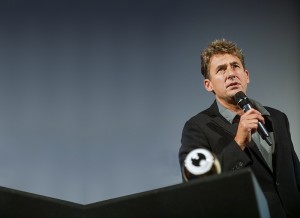 Tim Bevan
Tim Bevan Thekla Reuten
Thekla Reuten Rachael Joy
Rachael Joy Nikola Rakocevi
Nikola Rakocevi Nadja Schildknecht
Nadja Schildknecht Michael Bully Herbig
Michael Bully Herbig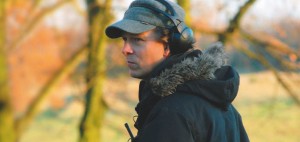 Lars Jessen
Lars Jessen Helen Hunt
Helen Hunt Douglas Trumbull
Douglas Trumbull Dieter Kosslick, Director Berlin International Film Festival
Dieter Kosslick, Director Berlin International Film Festival Benoit Delhomme
Benoit Delhomme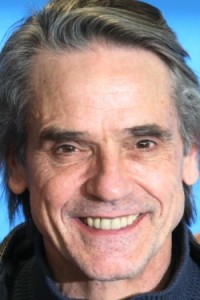 Jeremy Irons
Jeremy Irons